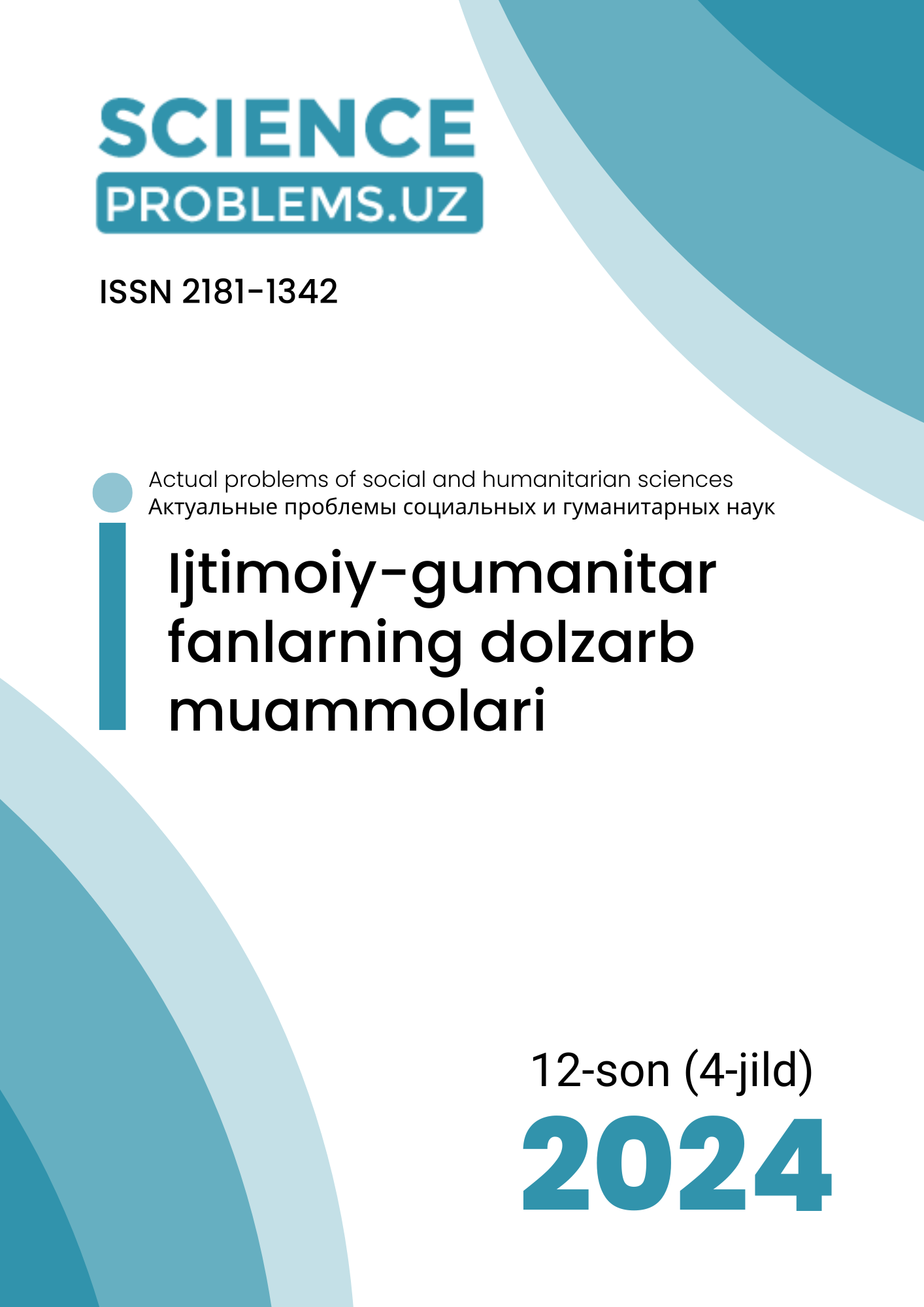JAHON AXBOROT RESURSLARI ORQALI TALABALARNING TADQIQOTCHILIK KOMPETENTLIGINI RIVOJLANTIRISHNING PEDAGOGIK VA PSIXOLOGIK ASOSLARI
Kalit so'zlar
https://doi.org/10.47390/SPR1342V4I12Y2024N90Kalit so'zlar
tadqiqotchilik kompetentligini rivojlantirish, jahon axborot resurslari, pedagogik yondashuv, psixologik tamoyillar, innovatsion taʼlim texnologiyalari, axborot savodxonligi.Annotasiya
Ushbu tadqiqotda talabalarning tadqiqotchilik kompetentligini rivojlantirishda jahon axborot
resurslarining oʻrni va pedagogik-psixologik yondashuvlar oʻrganilgan. Axborot savodxonligini oshirish,
tadqiqotchilik koʻnikmalarini shakllantirish va raqamli texnologiyalardan foydalanish metodlari tahlil qilinadi.
Talabalar ilmiy izlanish olib borish, mustaqil fikrlash va axborot resurslaridan samarali foydalanish koʻnikmalarini
rivojlantirishda jahon miqyosida mavjud ilmiy platformalar muhim ahamiyat kasb etadi. Tadqiqotda, shuningdek,
axborot texnologiyalaridan foydalanishning pedagogik va psixologik tomonlari, innovatsion taʼlim metodlarining
talabalarni ilmiy faoliyatga qiziqtirishdagi roli koʻrsatib oʻtilgan. Tadqiqot natijalari shuni koʻrsatadiki, talabalar
axborot resurslarini toʻgʻri va samarali ishlatish orqali ilmiy salohiyatlarini oshirishi mumkin. Bu esa ularning ilmiy
izlanishlarga boʻlgan qiziqishini va kompetentligini rivojlantiradi.
Manbalar
1. Abdullaeva Z. M. Innovatsion ta’lim texnologiyalari va tadqiqotchilik faoliyati. Toshkent:
O‘zbekiston Milliy Universiteti nashriyoti, 2020.
2. Ismoilov B. A. Zamonaviy ta’lim texnologiyalarining nazariy asoslari. Samarqand:
Samarqand Davlat Universiteti nashriyoti, 2019.
3. Azizov Sh. T., Karimov U. R. “Ilmiy tadqiqot olib borish ko‘nikmalarini rivojlantirishda
xalqaro axborot resurslarining o‘rni.” Oliy ta’lim va ilm-fan jurnalida ilmiy maqola
seriyasi, 14(2), 2021. 56-65.
4. Qodirov T. Axborot texnologiyalari va ta’lim tizimi. Toshkent: Fan va texnologiya
nashriyoti, 2022.
5. UNESCO Information and Communication Technology in Education: A Global Perspective.
Paris: UNESCO Publishing. 2019.
6. Scopus Database (https://www.scopus.com)
7. Web of Science Platform (https://www.webofscience.com)
8. SpringerLink (https://link.springer.com)
9. ProQuest (https://www.proquest.com/)
10. Coursera (https://www.coursera.org)
11. Bandura, A. Self-Efficacy: The Exercise of Control. New York: W. H. Freeman and Company.
1997.








